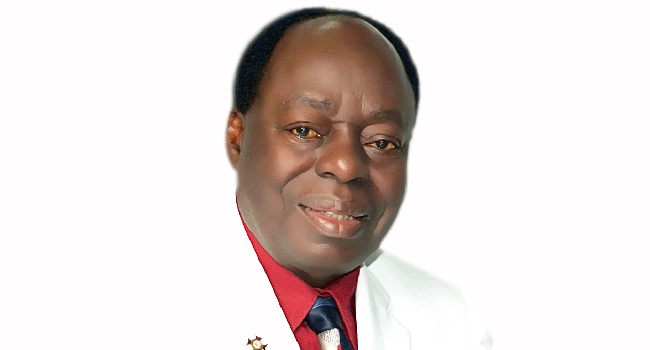Politics
Afe Babalola details flaws of cashless policy in failing economy

The founder of the Afe Babalola University, Ado Ekiti, Aare Afe Babalola, has highlighted the flaws of the cashless policy entrenched by the Central Bank of Nigeria (CBN).
Babalola spoke on Monday in a statement titled, ‘Cash crunch by banks: Damage may be worse than COVID-19’, while urging the Federal Government “to critically look into the situation of dearth of cash and or cash crunch by banks in the country.”
According to him, the state of the Nigerian economy which is majorly cash-based has contributed to the unpopularity of the policy.
He stated, “In the Nigerian context, a country that prides herself in much of analogue platforms that cannot transmit election results, because 301 out of her 774 local government areas could not have access to Internet, can, therefore, not effectively run a cashless environment, needless to successfully implement the so called Naija e-wallet.
“Even if the motive is to fully implement a cashless payment policy, then a robust change management policy must have been put in place that will not inflict hardship on the masses. Although cashless payments are becoming increasingly common, the demand for cash is rising in many advanced economies.
Read also: Afe Babalola harps on need for a new constitution before 2023 elections
“Most Nigerians earn their living from daily sales. These include market women, transporters, hawkers, tyre vulcanizers, plumbers, roadside mechanics, hairdressers and so on. In the absence of sales through cash, these large proportions of Nigerians suffer more than the few wealthy Nigerians by the cash crunch imposed by the central bank and the commercial banks.
“In recent times, the central bank and commercial banks have inflicted cash crunch on bank customers in the country. The cash crunch was felt virtually throughout the country. Many banks turned customers back for lack of funds, while those who had the misfortune of gaining entry into banking halls went home disappointed.
“Customers could not withdraw cash from the ATM machines in my university. The banks operating in the university also had no cash to pay to customers. The saving grace was that the students, who rely on ATM machines, were on holiday.”
Join the conversation
Support Ripples Nigeria, hold up solutions journalism
Balanced, fearless journalism driven by data comes at huge financial costs.
As a media platform, we hold leadership accountable and will not trade the right to press freedom and free speech for a piece of cake.
If you like what we do, and are ready to uphold solutions journalism, kindly donate to the Ripples Nigeria cause.
Your support would help to ensure that citizens and institutions continue to have free access to credible and reliable information for societal development.






















